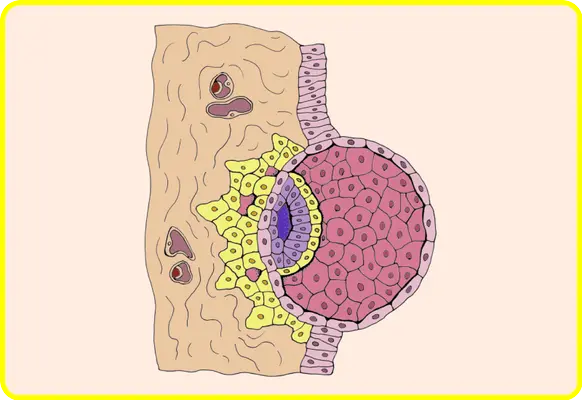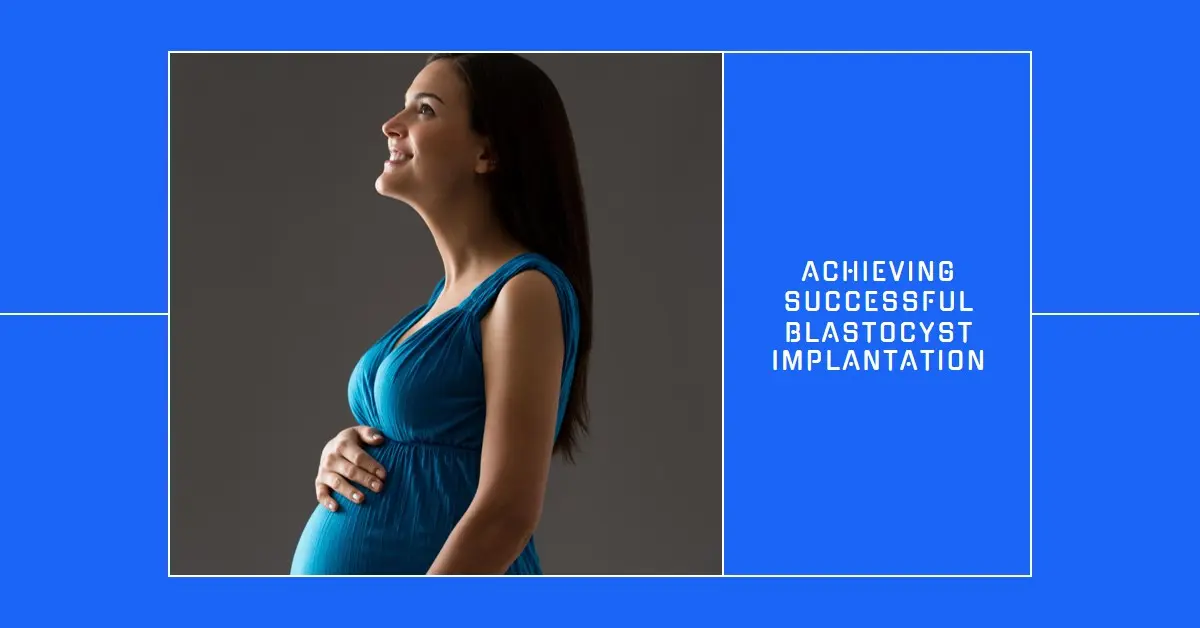For a successful IVF treatment, the fertility specialist will stimulate ovulation in the female partner. Induction of ovulation is the first step that ensures that the woman is producing a large number of mature and healthy eggs for fertilization. The eggs will then be retrieved from the female partner with the help of an ultrasound. The male partner should also be submitting their semen sample. The fertility specialist will combine the healthy egg with the sperm cell in a petri dish and monitor it in the laboratory. After fertilization, the zygote undergoes a series of stages. When it attains the blastocyst stage, doctors will transfer it to the uterus of the female for blastocyst implantation.
Blastocyst implantation:

Blastocysts are generally grown in the laboratory. Doctors will choose the healthiest of embryos to avoid multiple pregnancies and will transfer into the uterus of the female. After transferring, doctors will expect blastocyst implantation in a few days or weeks. But do blastocysts always implant? The chances are not 100%. Some common reasons why blastocyst implantation fails are as follows.
- Quality of the eggs and the sperm: Apart from the number of eggs and sperm cells, their health and overall quality matter as well. Only the healthiest eggs, sperm, and eggs will give way to a healthy pregnancy.
- Chromosomal anomalies: There are chances for implantation failure owing to variations in chromosomes in the embryo. There are chances for chromosomal defects to be generated during fertilization.
- Uterine environment: The uterus and its endometrial lining should be in good condition to support the growth of the baby. Usually, the endometrial lining will thicken for embryo implantation, but a level of scarring and implantation can create a poor environment, resulting in implantation failure.
- Lifestyle conditions: The woman undergoing IUI should follow the best lifestyle practices before, after and during conception. Women with metabolic disorders like diabetes, high blood pressure and thyroid diseases face implantation failure. For those who ask if blastocysts always implant? The answer is that poor dietary habits, lack of exercise and high stress levels can lead to failed implantation.
FAQ
What are the consequences of implantation failure?
Doctors will suggest a range of treatment options for blastocyst implantation failure. Based on the overall health, age and cause of implantation failure, doctors will suggest hormone supplements and repeat IVF with genetic testing.
What can we do to improve the success of blastocyst implantation?
We have to understand that the success rate of assisted reproductive techniques is not 100%, and it also depends on several other external and internal factors. However, the doctor can devise a few ways to increase the success rates of blastocyst implantation. There are some of the best fertility hospitals in India that devise a tailor-made treatment plan to mitigate the risks of failure and to improve the chances of conception.
They should have the advanced technologies and expert medical fraternity to perform blastocyst culture under optimal laboratory conditions. The fertility specialist will also monitor the woman’s health closely to identify the early signs of implantation failure. Apart from expert clinical treatment, they also offer personalized advice and guidance on one’s lifestyle to help achieve a healthy pregnancy at the earliest.
Signs of successful blastocyst implantation:
Signs of failed IVF are not obvious, and the woman will need clinical intervention to understand the signs of failed blastocyst implantation. However, by observing the signs of positive implantation, the woman can learn whether she has positive pregnancy results or not. The symptoms of implantation are as follows.
- Sensitivity and tenderness in the breast
- Slight cramping in the abdomen
- Fating and nausea
- Slight spotting
- Bloating in the abdomen
- Vaginal discharge
- Increased rate of urination
If the women do not experience these symptoms after 2 weeks of the IUI procedure, we can conclude implantation failure.
Bottom Line:
Blastocyst culture is common in the IVF cycle, and the success of blastocyst implantation depends on several factors. It is important to get treatment from fertility experts at advanced facilities to improve the success rate of the procedure.





